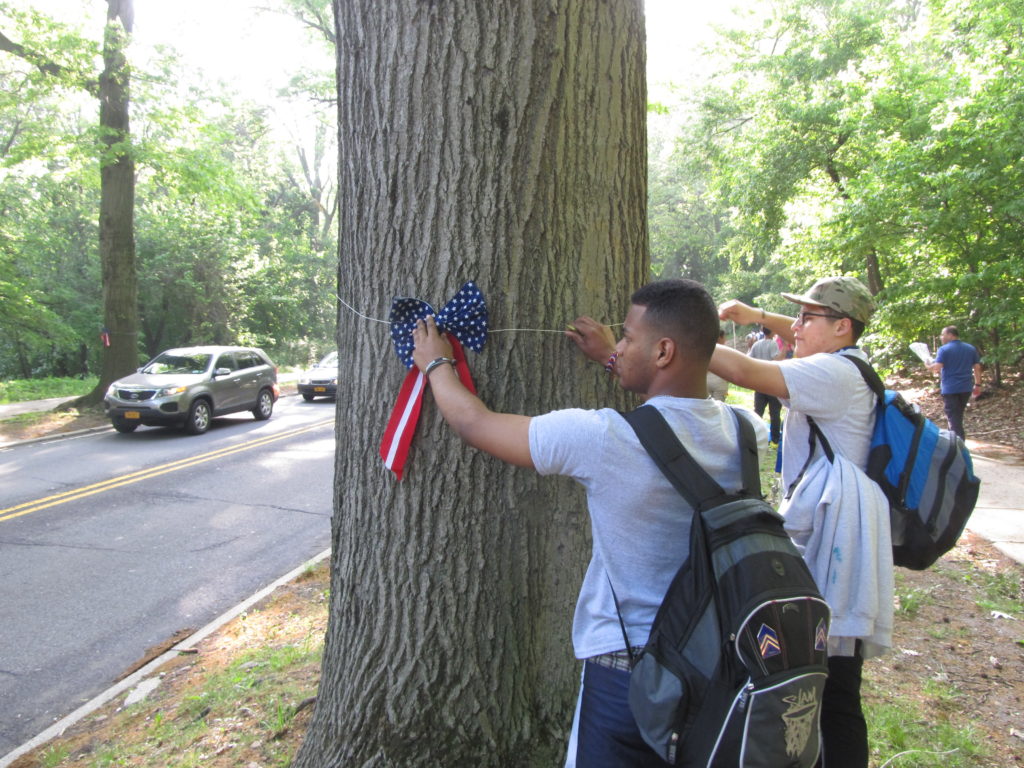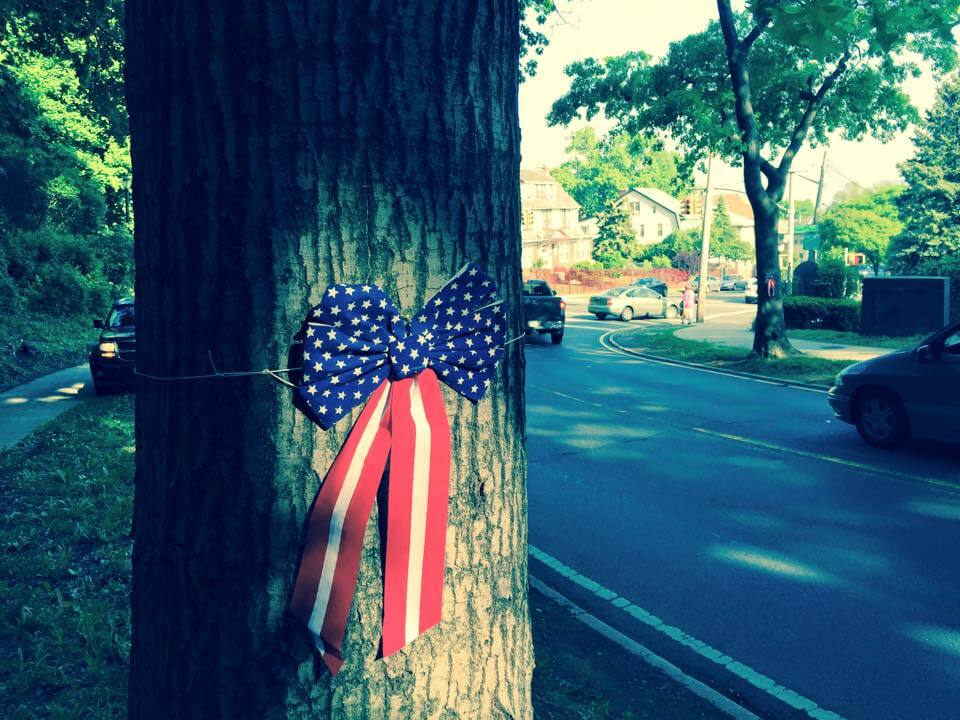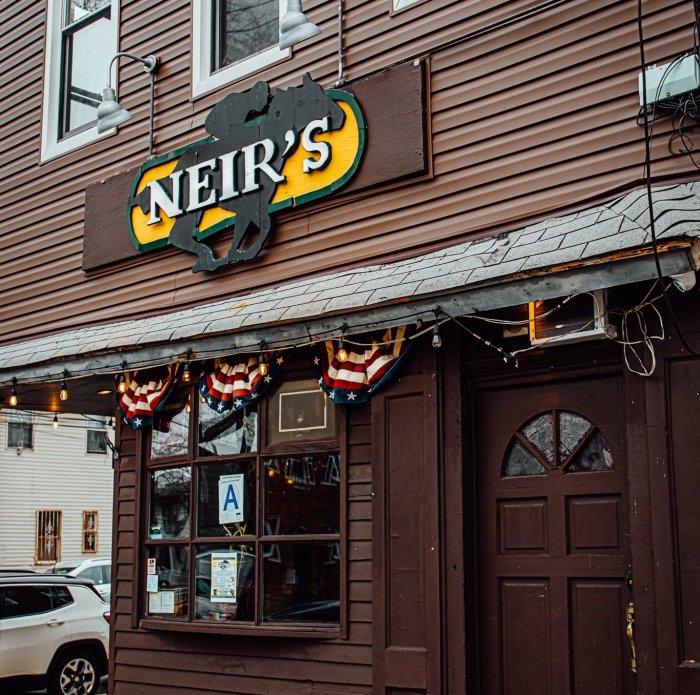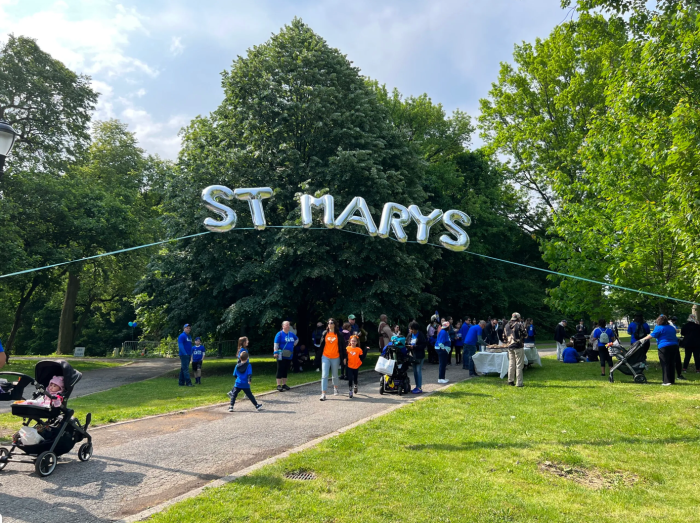One hundred years ago, Christmas was a bittersweet time for many in Woodhaven and around the world. On one hand, the Great War (later known as World War One) was now officially over. But on the other hand, families were now dealing with their losses.
Woodhaven suffered the loss of 70 young men. In time, each one of these young men may have turned out to be teachers and doctors and lawyers and policemen and community leaders. Instead, they lost their lives in service to this great nation and their loss was a tremendous blow to our community.
Each one of these men are remembered to this very day by a tree planted in a living, breathing memorial that sits in Forest Park. For years, the families of the dead soldiers would decorate the trees for Memorial Day but that tradition faded away over time, though it was recently revived by the Woodhaven Cultural & Historical Society.
But this article is not about one of those young men. Instead, it is about a young man for whom a tree was never planted.
As news of each new casualty came in, the local papers would publish the names of the dead under the simple headline “Taps.” You can imagine that residents of Woodhaven hated that headline, and fearfully scanned the names for young men they knew.
His name was Private Fred Fleury, and in November 1918, his name was one of the young men listed under “Taps.”
Private Fleury had enlisted and sailed to France the year before, landing on Memorial Day. Private Fleury was born in Woodhaven, and had lived here his entire life. He was an automobile mechanic.
At first, his parents had been notified that he was missing in action after a brutal battle in France, and they held out hope that he would find his way home safely. The family was still grieving the loss of a cousin, George Schneider of Woodhaven, who was killed in France the month before.
But then the worst news possible was confirmed in a telegram from the War Department. Private Fred Fleury had been killed in action back in September and the news was just reaching the family now, in time for Thanksgiving.
But Private Fred Fleury was never memorialized by the planting of a tree in Forest Park.
Another young soldier, Frank Nauth of Woodhaven, was not only a childhood friend of Private Fleury, but they served together in the same unit in France and were at each other’s side when fragments of the same shell struck them both.
Private Nauth survived with a nasty leg wound, but he was informed that his friend had been killed instantly. He was sent to a hospital in Bath, England, to recover where, to his surprise, while up and about for a walk, he ran into Private Fred Fleury of Woodhaven.
Both young men were thrilled; Fleury himself had been told that Private Nauth was killed.
Two weeks later, the Fleury family received a letter telling them that their young son was quite well. Enclosed was his Red Cross Christmas tag, to be attached to the Christmas Box families could send abroad.
And just like that, mourning turned to joy as the family scrambled to put together a package, after having received the greatest Christmas gift of all – their son’s life back.
The following March of 1919, Private Fred Fleury came home, along with everyone else who survived the war, and took part in a celebratory parade through Woodhaven. And that May, Private Fred Fleury and the rest of Woodhaven bore witness to the planting of the trees for the young men whose families did not receive a Christmas miracle.
































